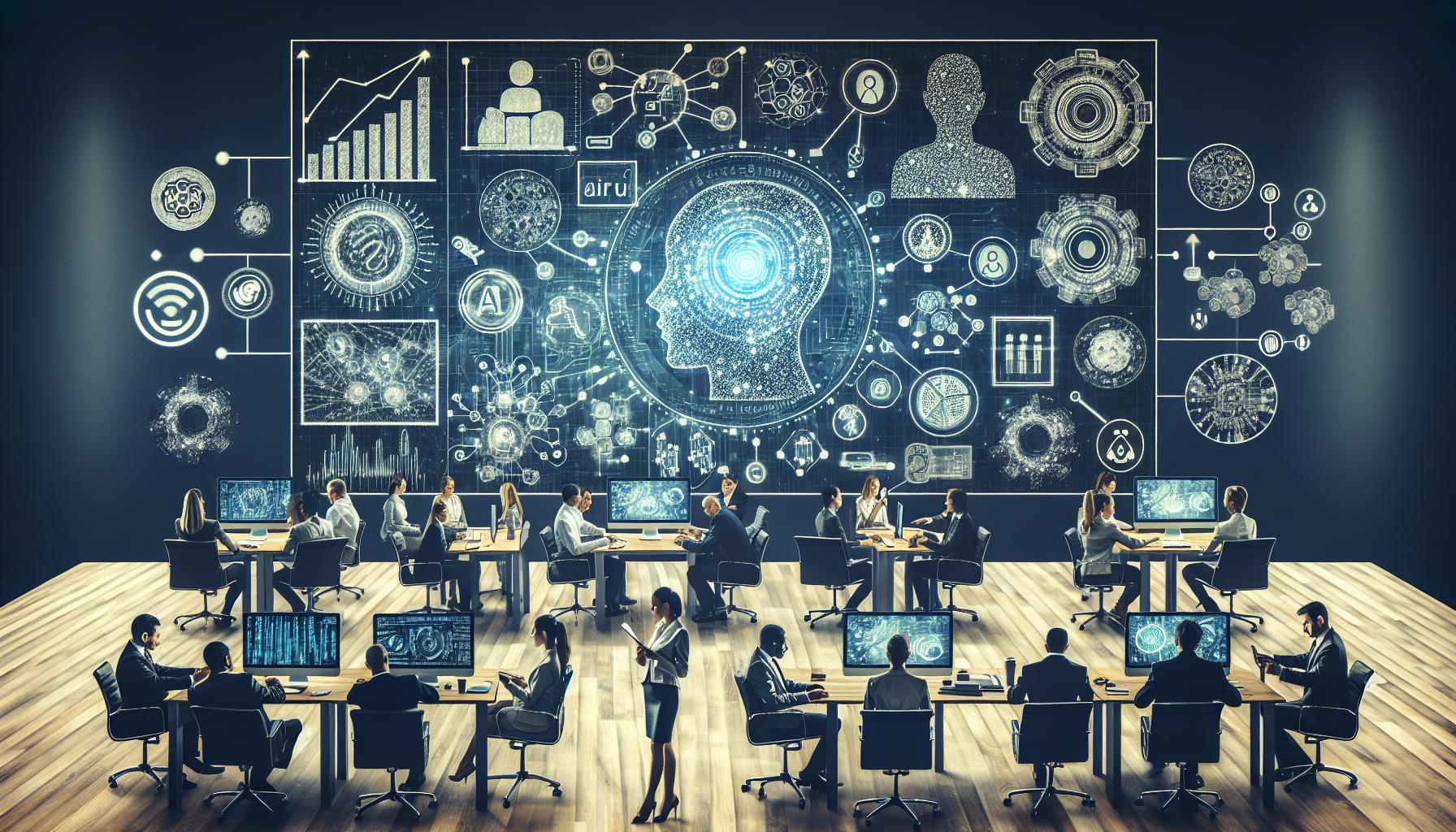Embracing the AI Revolution: How Artificial Intelligence is Reshaping Business and Workforce Expectations

Introduction
The rapid integration of Artificial Intelligence (AI) into business is not just a technological upgrade but a transformative force across operational and workforce dimensions. As A.I. technologies take over routine tasks and complex decision-making, they unlock unprecedented productivity and innovation, fundamentally reshaping how businesses operate and employees work.
AI Transforming Business Operations
AI is redefining traditional business models, automating mundane tasks, and providing insights for strategic decisions. Companies are now able to operate on a scale previously unattainable, managing vast amounts of data and complex operations efficiently. The adoption of A.I. in business processes leads to significant cost reductions and operational scalability, presenting a compelling case for its widespread integration.
The Human-AI Collaboration
AI is not a replacement for human workers but a potent collaborator. The synergy between human intelligence and artificial capabilities fosters a unique collaboration that enhances human work rather than displacing it. A.I. tools such as predictive analytics, machine learning models, and robotic process automation support humans by handling repetitive tasks, allowing them to focus on more strategic and creative aspects of their jobs.
Changing Communication Norms with AI
AI integration into telephony is a prime example of changing communication norms. Voice assistants and chatbots are becoming standard communication channels, significantly altering how customers interact with businesses. This AI-driven shift is not merely a technological advancement but a change in consumer expectations, pushing businesses to adopt and adapt to A.I. communications to remain competitive.
Workforce Adaptation to AI
As A.I. tools become ubiquitous in workplaces, the need for cultural and skill adaptations becomes essential. Forward-thinking organizations are investing in training programs to ensure their workforce can operate alongside A.I. efficiently. These programs focus on enhancing digital skills and promoting an understanding of A.I. functionalities, enabling employees to leverage A.I. tools for enhanced productivity.
AI Impact on Work Expectations
The presence of A.I. is transforming work expectations, influencing everything from flexible work arrangements to the automation of routine tasks. Workers are increasingly expecting to engage in higher-value work, leaving routine and repetitive tasks to machines. This shift is not only changing the structure of work but also the psychological approach of the workforce towards work, promoting a healthier work-life balance and higher job satisfaction.
Challenges and Considerations
Despite its benefits, the integration of A.I. into business and workforce brings several challenges. Issues like the digital divide, privacy concerns, and the need for robust regulatory frameworks are at the forefront. Furthermore, ethical considerations regarding A.I. deployment, especially in monitoring and assessing worker performance, require careful deliberation to ensure that A.I. technology is used responsibly.
Conclusion
AI's impact on business and the workforce is profound and indisputable. As businesses continue to embrace AI, they must foster a culture that supports these changes. Staying competitive in the modern economy requires not just adopting A.I. but fully integrating it into both business processes and workplace ethics.
Call to Action
Business leaders should proactively consider AI's potential to revolutionize their operations and workforce strategies. Engaging with tech consultants and participating in A.I. adoption seminars can provide valuable insights and prepare businesses for the future, ensuring they remain at the forefront of this technological revolution.




